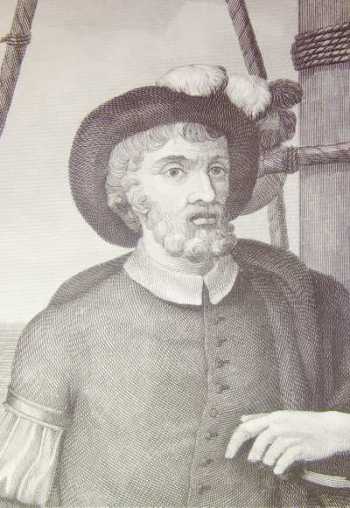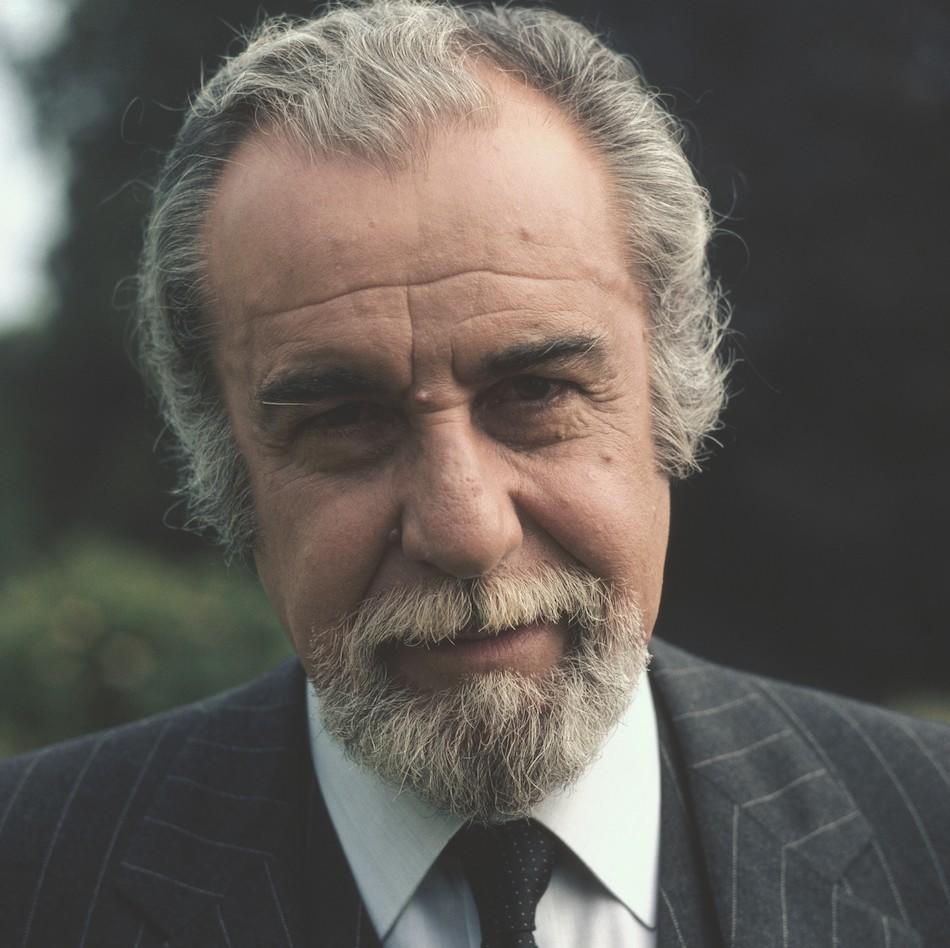September 20
Saint’s Day for Dionisio, Agapito, Felipa, Eustaquio, Prisco and Imelda.
1519 - The Portuguese-born explorer, Ferdinand Magellan, set sail from Sanlúcar de Barrameda, Cádiz province, on the service of the Spanish crown with about 270 men on what was to be the first successful voyage around the world. He was killed in the Philippines two years later.
1522 - Juan Sebastián Elcano took over command of the expedition. He brought the only surviving ship back home to Spain in 1522.

Juan Sebastian Elcano
1697 - The Treaty of Ryswick is signed by France, England, Spain, the Holy Roman Empire and the Dutch Republic ending the Nine Years' War (1688–97).
1920 - Lt Col José Millán-Astray y Terreros founds the Spanish Foreign Legion and became its first commander.
Births:
1893 - Heraclio Alfaro Fournier, engineer and aviator (d. 1962)
1897 - Arturo Barea, writer.
1917 - Fernando Casado Arambillet best known as Fernando Rey, was a Spanish film, theatre, and television actor, who worked in both Europe and the United States. A suave, international actor best known for his roles in the films of surrealist director Luis Buñuel and as the drug lord Alain Charnier in The French Connection (1971) and French Connection II (1975), he appeared in more than 150 films over half a century.

The debonair Rey was described by French Connection producer Philip D'Antoni as "the last of the Continental guys". He achieved his greatest fame after he turned 50: "Perhaps it is a pity that my success came so late in life", he told the Los Angeles Times. "It might have been better to have been successful while young, like El Cordobés in the bullring. Then your life is all before you to enjoy it."
Rey was born in A Coruña, the son of Captain Casado Veiga. He studied architecture, but the Spanish Civil War interrupted his university studies which led him to his success.
In 1936, Rey began his career in films as an extra, sometimes even getting credited. It was then that he chose his stage name, Fernando Rey. He kept his first name, but took his mother's second surname, Rey, a short surname with a clear meaning ("Rey" is Spanish for "King").
His brilliant performance in the role of a demotivated and doubtful actor in Juan Antonio Bardem's Cómicos (1954), while showing him for the first time in a successful lead part, paradoxically, as he saw himself as the real incarnation of the role, plunged him in a professional depression, of which he did not emerge until his collaboration with Luis Buñuel several years later. However, in the short term, Buñuel's disconcerting public remark on Rey's performance in another of Bardem's film, Sonatas (1959), "I love how this actor plays a corpse", could only increase Rey's apprehensions. Nevertheless, eventually Rey became Buñuel's preferred actor and closest friend.
1918 - Juan García Iranzo, cartoonist and screenwriter.
1928 - Manuel Seco, philosopher.
1933 - Enrique de la Mata, politician (d. 1987)
1951 - Javier Marías, journalist, author, translator and novelist (Corazón tan blanco) born in Madrid
1971 - Sergio Luyk, basketball player (b. 2008)
1981 - Feliciano López Díaz-Guerra, tennis player was born in Toledo. He reached the Wimbledon quarter finals in 2005, becoming the first male Spanish tennis player to do so since 1972.
1998 - Roger Príncep, actor.
Deaths:
1592 - Francisco Vallés, doctor (b. 1524)
1796 - Juan José Delhuyar, chemist (b. 1754)
1908 - Nicolás Salmerón, President of the First Spanish Republic in 1873.
1908 - Pablo Sarasate, violinist and composer.
1930 - Luis Gilabert Ponce, sculptor
